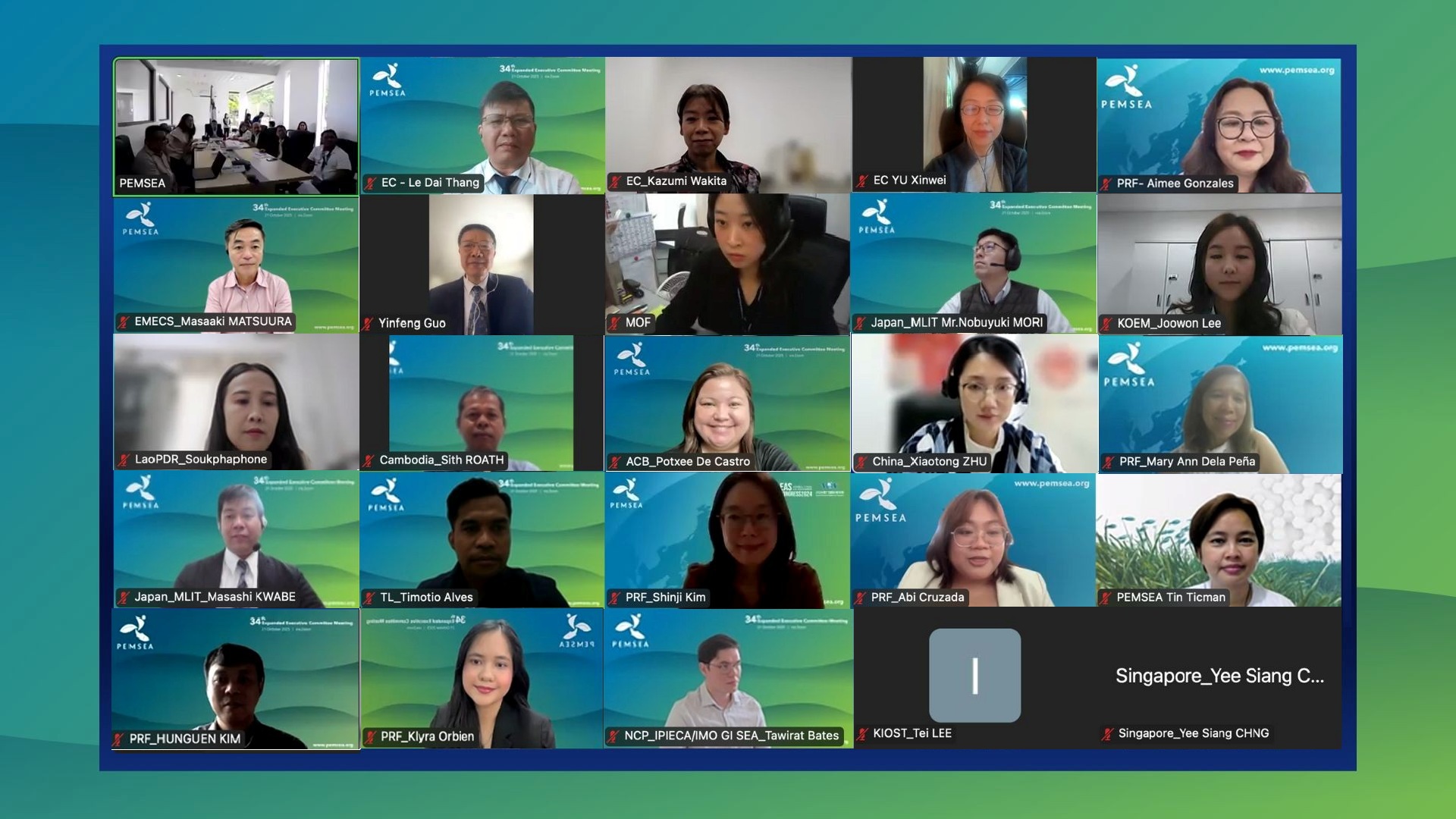Local Oil Spill Contingency Plans Launched in Thailand and Viet Nam
Saturday, 19 March 2011

Chonburi, Thailand — East Asia's and probably the world’s first provincial-level oil spill contingency plans were recently launched in Thailand’s Chonburi province and in the two Vietnamese southern provinces of Tra Vinh and Ben Tre. Professor Raphael P.M. Lotilla, PEMSEA Executive Director, emphasized their significance since 80 percent of oil spills are classified as small (below 7 tons) and require localized response while major oil spills almost always require the involvement of local governments.
PEMSEA, a Manila-based regional program of the Global Environment Facility (GEF) and the United Nations Development Program (UNDP), has been working since 2001 with the Cambodian, Thai and Vietnamese governments on oil spill preparedness cooperation. The provincial oil spill contingency plans implement the Joint Statement between Cambodia, Viet Nam and Thailand on Partnership in Oil Spill Preparedness and Response in the Gulf of Thailand, which was signed in 2006 within this cooperative framework.
Chonburi Province in Thailand, which includes the city of Pattaya, was prioritized by the Thai Government as a high-risk and sensitive area to marine oil pollution. Coastal activities in the area include Thailand’s second largest port in Laemchabang and other international ports, 2 major oil refineries, and 3 oil terminals, all co-existing with coastal tourism, fishing, and aquaculture. Since 1997, there have been 27 reports of oil spills, mostly illegal discharges. An oil spill involving 240 tons occurred in 2002 with 50% affecting the coastline. Another spill involving 110 tons in 2002 was contained at sea, but an oil slick affected coastal aquaculture. In 2004, a spill involving 150 tons occurred in Pattaya Bay but timely response by Thai authorities prevented it from affecting the shoreline.
Professor Lotilla cited the Chonburi local contingency plan which came into effect on 22 November 2010, as a multi-stakeholder effort involving Thailand's Marine Department, the Royal Thai Navy, Chonburi Disaster Prevention and Mitigation Office, the local government through the coastal Municipalities in Chonburi, the port authorities and the private oil industry companies through the Industry Environmental Safety Group. The oil spill contingency plan forms part of Chonburi's Integrated Coastal Management Program coordinated by Mr. Vittaya Khonplume, Chief Executive of Chonburi's Administration. Thailand established its National Oil Spill Contingency Plan in 2002, but the different sectors identified the need for a local plan in the high-risk area of Chonburi.
Viet Nam's efforts, on the other hand, have been coordinated at the national level by the National Committee for Search and Rescue, headed by a Deputy Prime Minister, with the National Southern Oil Spill Response Center (NASOS) as the center for the southern region. In addition to the two approved local oil spill contingency plans, 5 other provinces have submitted drafts for appraisal with the remaining southern provinces expected to submit their plans by year-end.
Viet Nam ranks 3rd in crude oil production in Southeast Asia, after Indonesia and Malaysia, with most oil exploration and production taking place in the southern part of the country. Southern Viet Nam is also the fastest growing region of Viet Nam covering Ho Chi Minh and Can Tho cities and the provinces of Dong Nai, Ba Ria-VungTau, and Bihn Duong. This region is the focus of transport, storage, transfer and distribution activities of crude oil and oil refinery products particularly in the Mekong River area. NASOS data shows that most of the oil spills in Viet Nam have taken place in the southern region.
The Vietnamese provinces are also planning with NASOS assistance to develop provincial environmental sensitivity maps to help determine the natural and socio-economic resources at risk and guide oil spill impact evaluation, prevention, clean-up and contingency planning activities.
To provide technical expertise to the Gulf of Thailand efforts at the sub-regional and local levels, PEMSEA has been able to partner with the Oil Spill Response Limited (an oil industry-supported organization based in Singapore), the International Tankers Owners Pollution Federation, the International Maritime Organization, and the U.S. National Oceanic and Atmospheric Organization.




